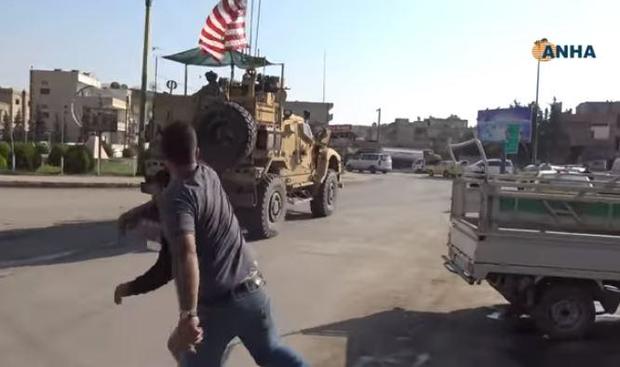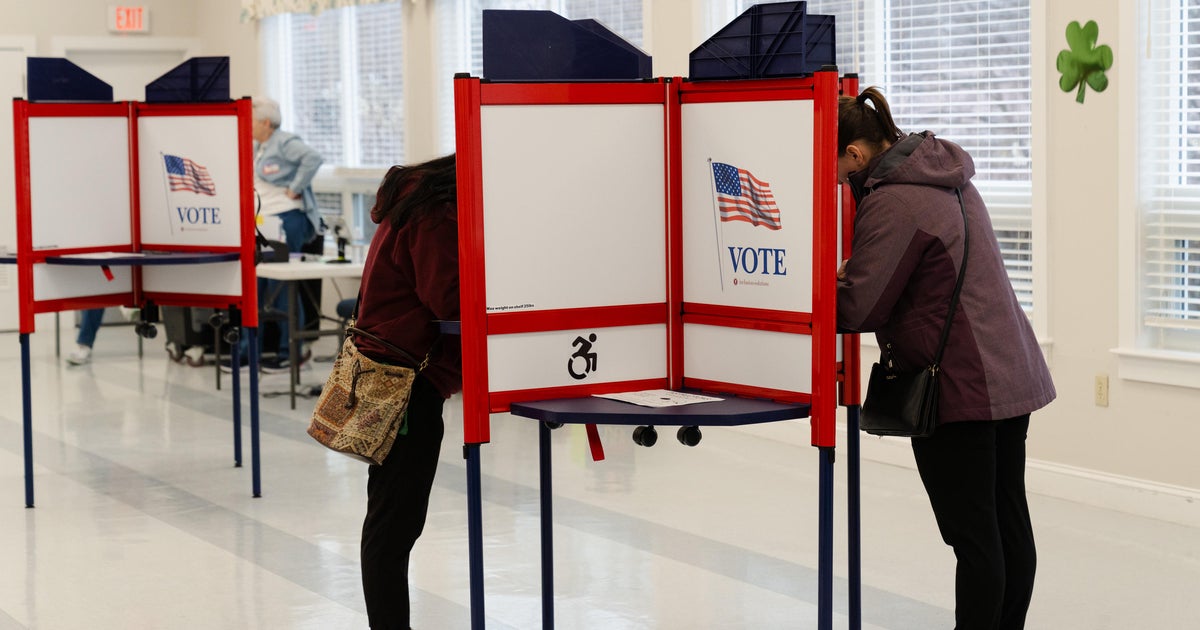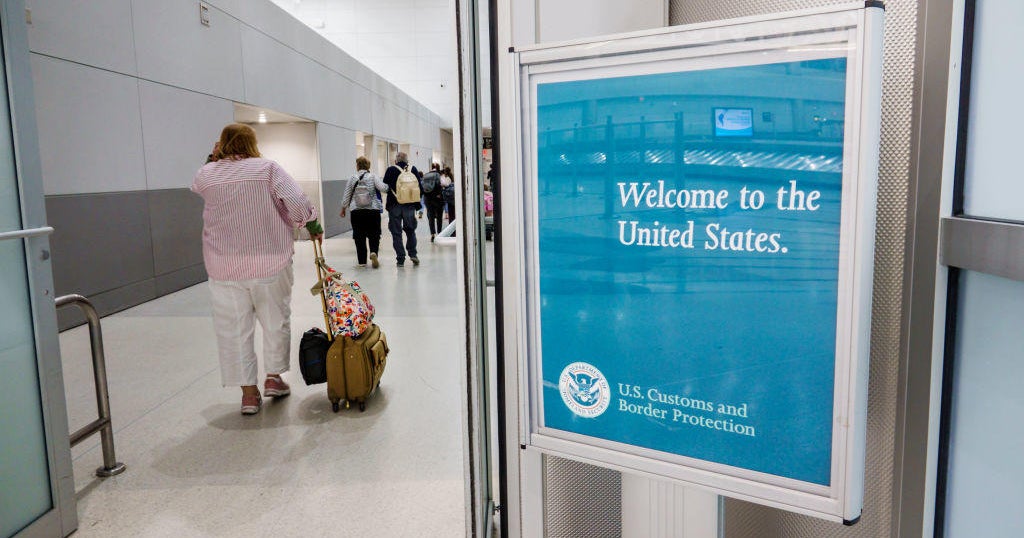U.S. troops are not coming home from Syria, and some may stay there to fight ISIS
Sanliurfa, Turkey — Most of the troops President Trump boasted about bringing home from the "endless war" in Syria are actually just crossing the border into Iraq, where they will be positioned to keep helping in the fight against ISIS if needed. And it turns out some may not leave Syria at all, at least not anytime soon. Secretary of Defense Mark Esper has laid out plans to move the roughly 1,000 U.S. troops from northern Syria into Iraq.
Mr. Trump has been accused by America's former Kurdish allies in the region of abandonment, and by politicians from both sides of the aisle in Washington of striking a deal with Turkey that looks more like a concession than a peace agreement.
As U.S. troops withdrew Monday from towns in northeast Syria where they've been based for years alongside the Kurdish-led Syrian Democratic Forces (SDF), video posted online appeared to show locals hurling fruit and vegetables at an American convoy.
In spite of Mr. Trump's assertions in recent days that he was "bringing soldiers home" and plans announced last week to pull all American forces in northern Syria out, Esper acknowledged during a visit to Afghanistan on Monday that at least some U.S. boots were likely to remain on the ground inside Syria.
A senior U.S. official told CBS News national security correspondent David Martin that the Pentagon had developed a plan that would let them keep about 200 soldiers in eastern Syria to help SDF units protect oil fields — to prevent the lucrative infrastructure falling into the hands of ISIS militants.
To the Kurdish fighters who battled for almost six years with U.S. forces against ISIS, the pullout feels like a betrayal. They were America's closest partners on the ground in Syria, and CBS News correspondent Holly Williams personally witnessed them beating back the Islamic extremists — and laying down their lives in the fight to do so.
That was until they came under attack from Turkey earlier this month, right after President Trump effectively opened the door to the Turkish offensive by announcing that U.S. forces would pull back from Syria's border with Turkey.
Turkish President Recep Tayyip Erdogan's government considers the Kurdish-led SDF to be part of a terrorist organization tied to a separatist movement based in southern Turkey. On Monday, Erdogan lashed out at U.S. and European politicians for not backing his cross-border offensive in Syria.
"Can you imagine the whole West stood by the terrorists and all attacked us, including NATO member states and European Union countries," Erdogan rhetorically asked reporters in Istanbul.
Williams said Monday it was difficult to believe that just weeks ago she was on a U.S. base in Syria, listening to the senior American Special Forces commander in the campaign against ISIS describing the close relationship between American troops and the Kurdish forces Turkey claims are terrorists.
General Eric Hill told Williams that he and his troops were already seeing "the beginnings" of an ISIS insurgency take root in northern Syria, mere months after the group was deprived of its last territory.
"We're working very hard with our partner here to stay after them and not allow that to happen," Hill told CBS News.
That partner Hill was talking about was the SDF, but now those Kurdish-led forces say they've stopped fighting ISIS. Syrian regime troops loyal to dictator Bashar Assad have moved into parts of their territory, and 200,000 civilians have reportedly fled amid clashes with Turkish forces.
Vice President Mike Pence negotiated a temporary ceasefire with Erdogan last week, but it is set to end on Tuesday.
Turkey has demanded the Kurdish-led fighters pull back from a nearly 300-mile-long stretch of border the Syrian-Turkish border, stretching almost 20 miles south into Syrian territory, or it will renew its assault. So far, the Kurdish withdrawal hasn't happened.
The other impact of the U.S. withdrawal has been to hand even greater influence to Russia.
Erdogan will meet Russian President Vladimir Putin on Tuesday, and the future of eastern Syria could be decided at the meeting — a meeting in which the United States will play no part.




